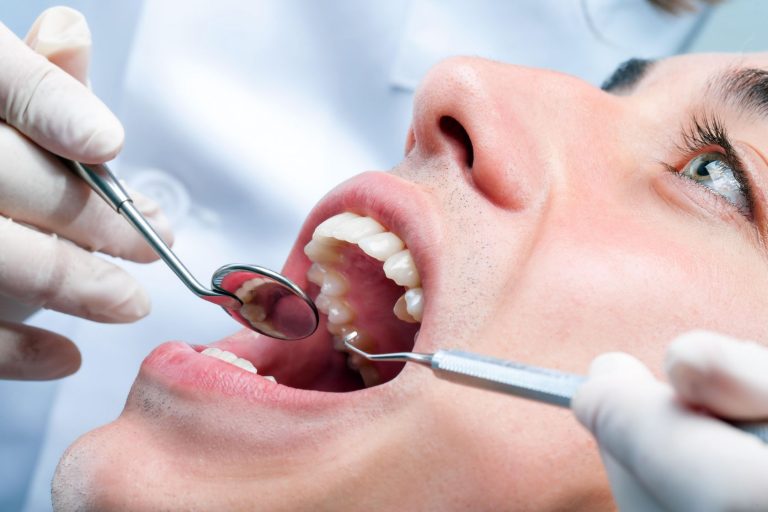Did you know your mouth is a window to your overall health? It’s not just about having pearly whites and fresh breath, your oral health serves as a mirror, reflecting what’s happening in the rest of your body. By paying attention to the state of your teeth, gums, and oral tissues with regular visits to your family dentist in Tuckahoe, VA, you can uncover clues that may indicate broader health issues.
Here’s how your mouth might be trying to tell you something about your overall well-being.
The Mouth-Body Connection
Your mouth isn’t an isolated part of your body. It’s closely connected to other systems, and any imbalance or problem can often show up there first. Research has shown that oral health and overall health are deeply intertwined. Poor oral hygiene can lead to an overgrowth of harmful bacteria, which may cause inflammation linked to other conditions like diabetes, heart disease, and even respiratory infections.
On the flip side, systemic health problems can manifest in your mouth and gums before you notice other symptoms. That’s why dentists often play a crucial role in detecting early signs of serious systemic conditions.
Signs Your Mouth Might Be Telling You About Your Health
Paying close attention to oral symptoms could help you identify underlying health problems sooner rather than later.
Here are some common oral health issues and what they could indicate about your overall health.
1. Gum Disease and Heart Health
Bleeding, swollen, or receding gums could be a sign of periodontal (gum) disease, which is caused by bacterial infection and chronic inflammation. Gum disease doesn’t just harm your smile; it’s also linked to an increased risk of heart disease.
The bacteria from inflamed gums can enter your bloodstream, potentially causing inflammation in your blood vessels. This may lead to conditions like atherosclerosis, which can increase your risk of stroke and heart attack. If you’re noticing persistent gum issues, it’s time to see both your dentist and possibly your primary care doctor.
2. Bad Breath and Digestive Health
Everyone has bad breath after garlic bread or a long day, but chronic halitosis (bad breath that won’t go away) could be signaling something more serious. It might point to gum disease, but it can also hint at digestive issues like acid reflux or infections in your gastrointestinal tract.
Occasionally, bad breath is associated with chronic conditions like diabetes, where high blood sugar levels can lead to fruity-smelling breath caused by a condition called diabetic ketoacidosis. If brushing and flossing don’t work, consult your healthcare provider.
3. Tooth Decay and Diet-Linked Diseases
Cavities are often just a sign of sugary snacking or neglecting oral care. However, frequent tooth decay could also indicate a broader problem, such as high sugar levels in your body, which is common in diabetes.
People with diabetes often experience increased levels of glucose in their saliva, which can fuel harmful bacteria and lead to cavities. Regular dental visits will help catch these signs early, and your dentist may recommend visiting a physician for further testing.
4. Bone Loss and Osteoporosis
Weak teeth or a receding jawline may point to an underlying issue with your bone density. There’s a clear connection between oral health and osteoporosis, a condition that weakens bones and makes them brittle. Tooth loss and loose teeth are common symptoms of this systemic condition.
Dentists play a key role in catching osteoporosis, especially since X-rays can reveal bone density issues in the jaw long before fractures occur elsewhere.
5. Mouth Ulcers and Immune System Conditions
Mouth ulcers or sores that don’t heal could be a sign of an underlying immune problem. While occasional sores are normal and often related to stress or minor injuries, persistent ones might indicate conditions like celiac disease, Crohn’s disease, or even certain types of cancer.
Ulcers on the tongue, gums, or other parts of the mouth should never be ignored—seeing a doctor for an evaluation can provide clarity and, if necessary, early intervention.
6. Dry Mouth and Medication Side Effects
Do you suffer from constant dryness in your mouth? This could be a side effect of certain medications, including antihistamines, antidepressants, and blood pressure drugs. While it may seem minor, dry mouth can lead to other complications like cavities, gum disease, and infections if left untreated.
Why do Regular Dental checkups matter?
Routine dental visits are about more than just teeth cleaning. They’re a critical part of preventive care for your overall health. Dentists are trained to spot abnormalities in your gums, teeth, and oral tissues that may indicate systemic conditions. Early detection can lead to early treatment, potentially saving you from more serious health complications.
Conclusion
Your mouth is like a health dashboard, offering insights into what’s going on inside your body. Paying attention to symptoms like gum disease, bad breath, ulcers, or dry mouth isn’t just about maintaining a beautiful smile, it’s about safeguarding your entire well-being.
By adopting good oral hygiene habits, attending regular dental check-ups, and addressing any unusual symptoms promptly, you’re taking an active role in your health. Your mouth has a lot to say, so make sure you’re listening, it might just save your life!

